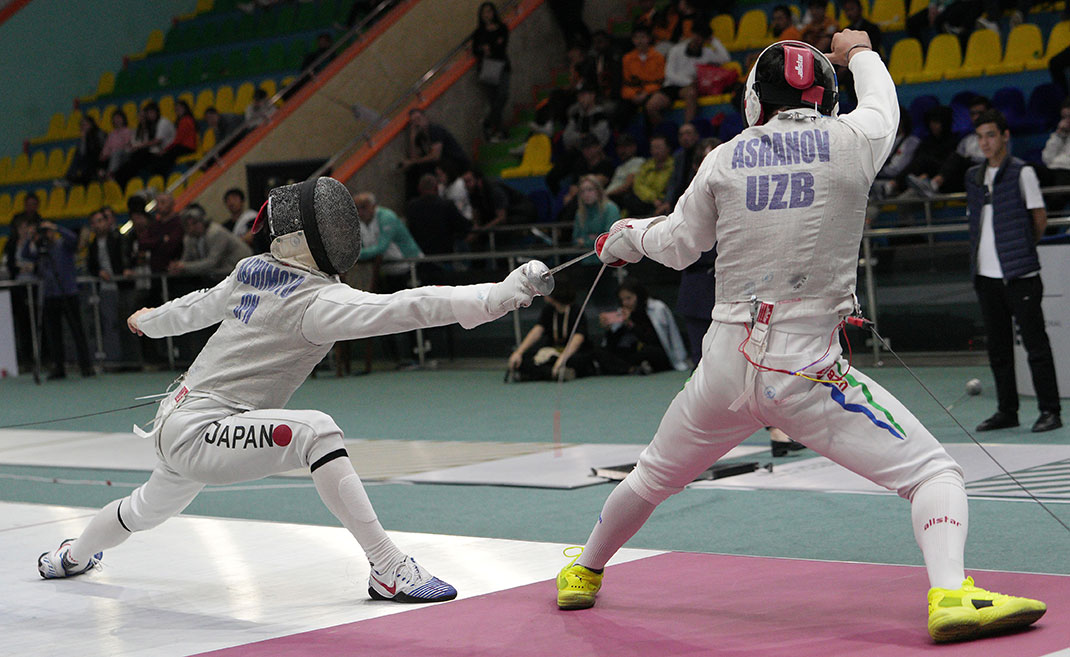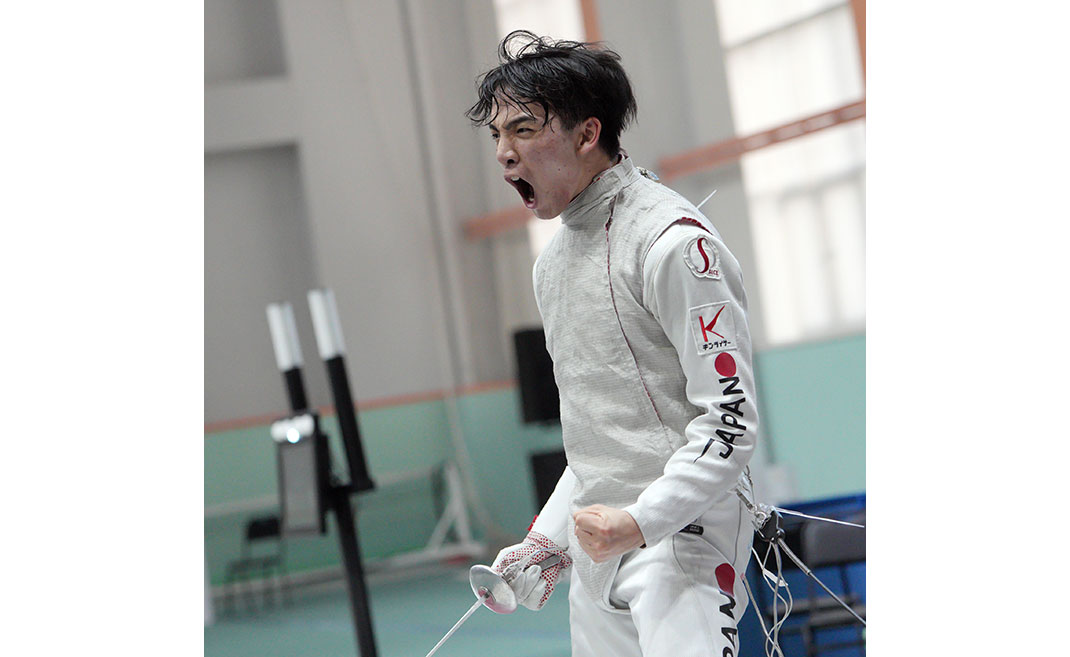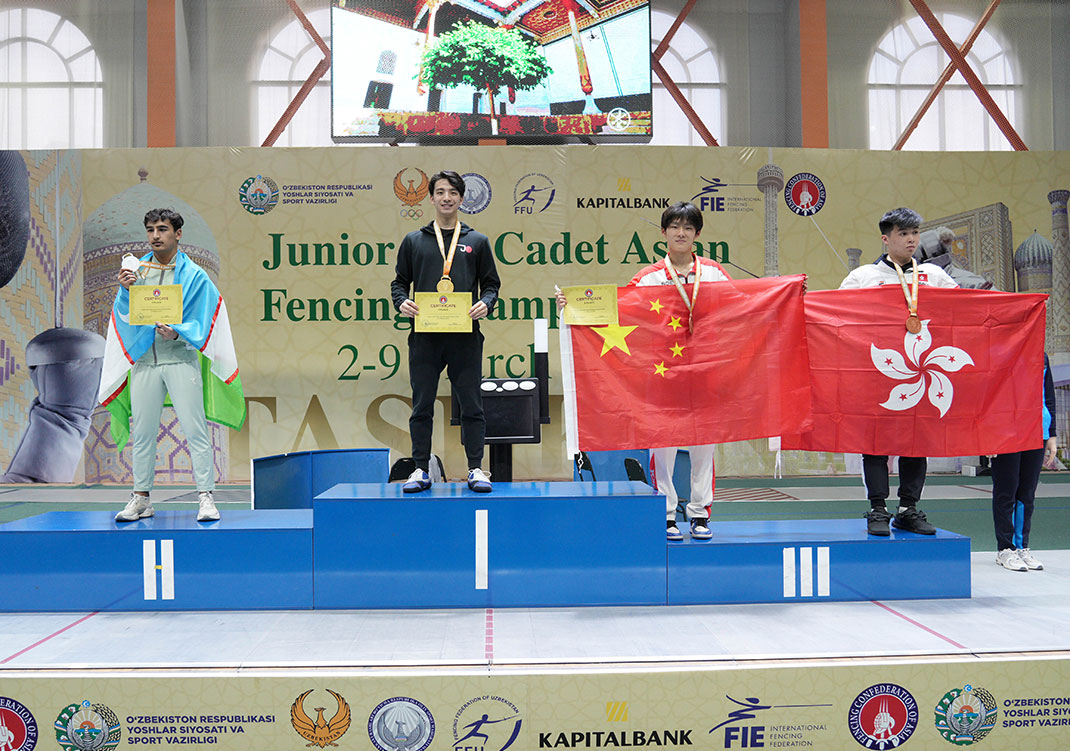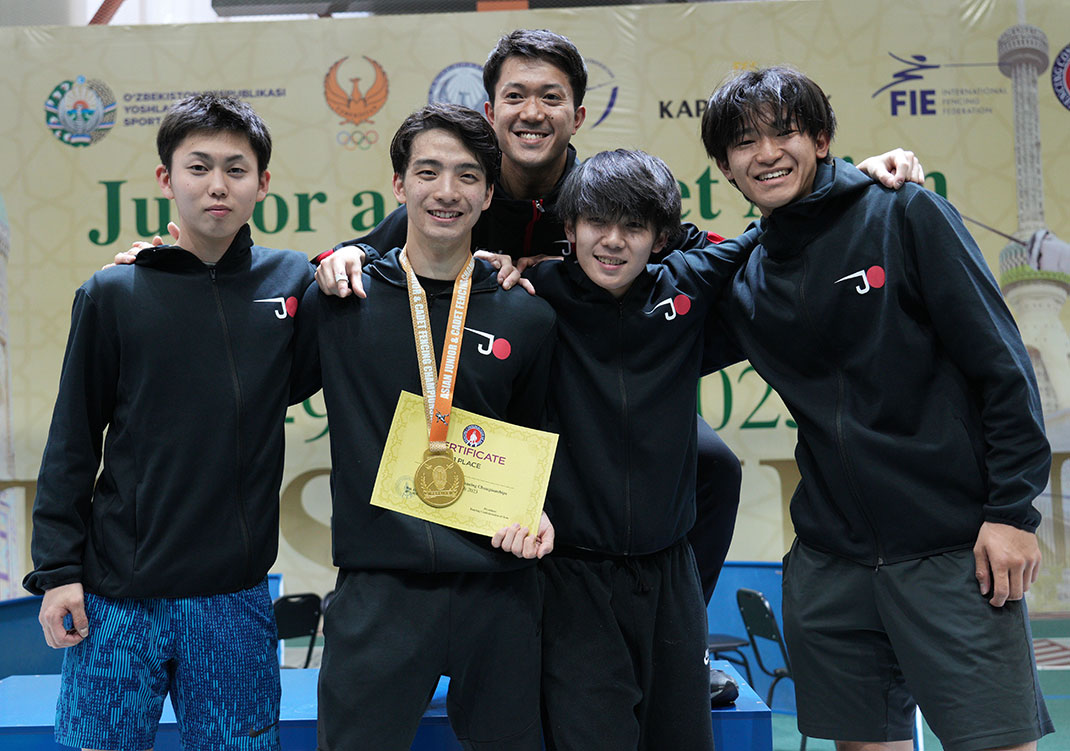Mar 16, 2023
Shoei Hashimoto of Rikkyo’s fencing team wins gold medal in junior men’s foil at the Asian Junior and Cadet Fencing Championships
Keyword:INFORMATION
OBJECTIVE.
Shoei Hashimoto, a first-year student at the Department of Economics, College of Economics, won the gold medal in the junior men’s foil at the Asian Junior and Cadet Fencing Championships 2023, held in Tashkent, Uzbekistan, March 2-9.
The championships are the most prestigious Asian fencing competition among fencers 20 years old or younger, as those ranked within the top four in each country are qualified to participate. Sixteen countries participated in team competitions, while 66 fencers joined individual competitions in the three events: epee, foil and sabre.

Shoei Hashimoto, left. ©Japanese Fencing Federation/Augusto Bizzi/FIE

©Japanese Fencing Federation/Augusto Bizzi/FIE
- Epee
A fencer scores a point when any part of the opponent’s body is contacted with a thrust. If the two fencers contact each other simultaneously, they both win a point. Among the three events, this is the easiest to understand
- Foil
In this event, which Hashimoto won, a fencer scores a point only when striking the opponent’s torso with a thrust. A fencer can earn a point only when the fencer has the right of way (offense).
- Sabre
A fencer scores a point when contacting the opponent’s body with a thrust or cut. It is a dynamic event, because a fencer can win or lose instantly.

©Japanese Fencing Federation/Augusto Bizzi/FIE
Hashimoto won the final, 15-14, in a one-minute sudden-death to clinch the championship. His road to victory was not easy, however. In the bout with a Chinese fencer in the second round, he wasn’t able to show his usual level of skill. But Hashimoto managed to defeat his opponent in a one-minute sudden death by translating his strong determination not to lose into a better performance. After this bout, his performance improved, winning 15-8 in the third round, 15-5 in the fourth round and 15-4 in the semifinal.

©Japanese Fencing Federation/Augusto Bizzi/FIE
In the final against an Uzbek fencer, Hashimoto performed as local spectators frantically rooted for his opponent. Every time his opponent scored, a big round of applause filled the venue. To counter it, Japanese and South Korean fencers supported Hashimoto with big cheers. As if responding to the cheers, Hashimoto scored three consecutive points after trailing the opponent with a score of 12-14.
Hashimoto’s fencing records
- Inter-high School Championships: individual, third place; team; championship
- Tokyo Junior Fencing Championships: third place
- Maki Junior Fencing Cup: runner-up
- JOC Junior Fencing Cup (fencing): third place
Other News
-
Jul 22, 2025
Comment
First-year student, Department of Economics, College of Economics
Shoei Hashimoto
In clinching the victory, I felt nothing but a strong sense of gratitude. Thanks to the many people around me who have supported me, I was able to achieve what could not have done alone. I would like to take this opportunity to extend my gratitude to those concerned. I am very grateful.
I am not mentally strong (laughs). But I decided to face my weakness, rather than ignoring it or leaving it alone. I acted, while thinking of ways to make my mentality stronger or to have confidence in myself.
I ran two kilometers for more than 120 consecutive days, even on rainy days. I was confident that I practiced fencing more than anybody. This helped me develop self-confidence, which in turn led to my best performance at the championships that I had always dreamed of.
I feel happier about being able to demonstrate my fighting spirit, rather than the victory itself. My biggest dream is to win the gold medal at the Olympic Games. I will do my best to realize my dream, but I need your support. Thank you very much again.
(Photo: ©Japanese Fencing Federation/Augusto Bizzi/FIE)